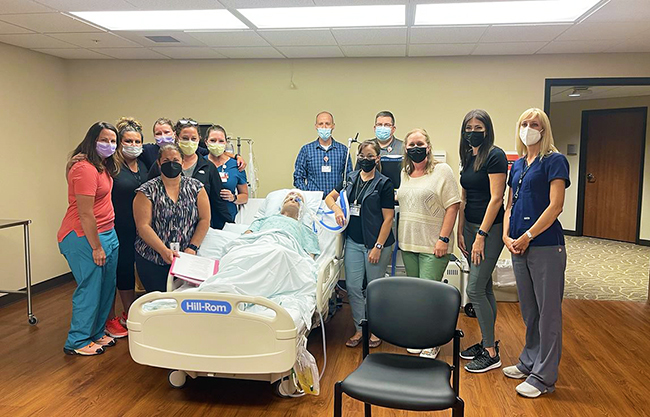
As anyone who’s been involved with donation can tell you, lung procurement and transplant is quite challenging. The lungs of brain-dead donors or lungs that have been injured can be difficult for clinical staff to manage and optimize.
Faced with this reality, LifeCenter Northwest staff members are taking a proactive approach to boost lung donation: Practicing lung management using high-fidelity manikins in medical partner labs. These “simulation labs”—which are happening across our region in July, August and September—allow our staff to practice vital procedures such as bag-mask ventilation, intubation, defibrillation, chest tube placement and more.
“Generally, respiratory therapists manage the ventilator bedside,” said LifeCenter Clinical Training Program Manager Liz Peterson. “The sim labs will help our team better understand and explain our needs for lung management to a respiratory therapist.”
These simulation labs also give our Organ Recovery Coordinators and Organ Donation Coordinators a low-stakes opportunity to be hands-on with ventilation of a “donor”—to play with the vent and see how it works. The manikins used in the simulation labs breathe, have pulses and blood pressure, make lung and heart sounds and allow for measurement of fluid volume and the saturation of oxygen.
“We are so grateful for the access to these labs around our region,” Liz added. “It helps us meet staff where they are. It also allows us to connect teams that haven’t met at all or haven’t seen each other face-to-face in the last three years due to the pandemic.”
Thank you to our hospital partners at Billings Clinic, Providence Sacred Heart Medical Center and Harborview Medical Center for hosting these simulation labs as part of our continued partnership to save lives through organ and tissue donation.


